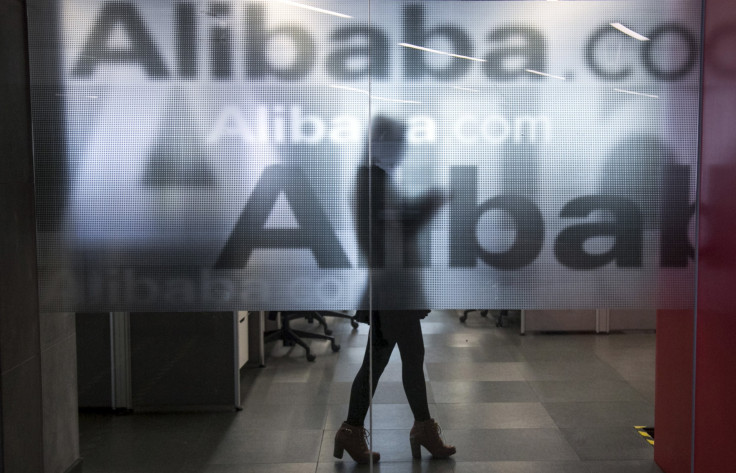Alibaba IPO: Wall Street Scrambles To Get Piece Of The Action, Even As Price Range Goes Up

The two hedge fund executives in bespoke suits turned to each other, winked and said, “Open sesame!” That reference to the magic words that reveal hidden treasure in the classic fairy tale failed to impress the security guard at the private elevator taking invited guests up to the 18th-floor suite of rooms in New York’s Waldorf Astoria hotel for the Alibaba investor presentations last Monday. And the two investors shrugged before strolling back to the end of the line of almost 800 investors, which wound its way through the ground floor and basement of the hotel.
At least the duo received a coveted invitation to learn more about the Chinese e-commerce giant’s upcoming initial public offering on Sept. 19, which could be the biggest tech IPO of all time. Many others were turned away.
Up and down Wall Street and beyond, investors are scrambling for a piece of Alibaba before its underwriters close the book on orders due to heavy demand since the company launched its IPO roadshow last week in New York. Alibaba's investor presentations in Boston and San Francisco were just as packed as the one in midtown Manhattan.
Some prominent hedge-fund executives have seen their requests for one-on-one meetings turned down. Instead, institutional investors such as BlackRock and Fidelity and sovereign wealth funds in the Middle East and Asia dominated most of the meetings, reports the New York Times. And hedge-fund managers -- Daniel Loeb of Third Point and David A. Tepper of Appaloosa Management, among them -- were invited to group meetings with Alibaba executives.
Another hedge-fund heavyweight, Leon Cooperman of Omega Advisors, came away very impressed after meeting with Ma and his management team, telling CNBC that he plans to invest in the stock once it goes public.
In the face of such high demand and after combing through orders, many of them at the high end of the $60 to $66 range, Alibaba’s founder Jack Ma and his advisers have decided to raise the top end to $68, according to reports.
The firm’s underwriters told their salesmen on Friday morning to close all orders from U.S. investors by Tuesday afternoon, according to several sources, adding that they might push the IPO’s fundraising goal beyond $21.1 billion. International investors will have until Wednesday to place their orders.
As Alibaba takes the roadshow to Asia and Europe this week, Ma is telling potential investors in Hong Kong that he considered going even higher with the price range but decided to keep it reasonable, sources told Bloomberg News. Ma compared it to the pricing of Alibaba.com, its business-to-business marketplace, which skyrocketed in its Hong Kong IPO in 2007.
Even at that top end, the stock is being recommended by some investors, including Jeff Papp, a senior analyst at Oberweis Asset Management, who will attend the investor presentation when the roadshow comes to Chicago on Sept. 18. "The valuation looks attractive and is still trading at a discount [at the $68 price], he says. "I don't think it's a complex investment decision. Their business is pretty easy to understand."
Though demand might be high among institutional investors, many high net-worth individual investors aren’t as caught up in the hype. Due to Alibaba’s lack of name recognition, some concerns about its corporate governance and the fact that many broker-dealers are not participating in the IPO, some savvy stock pickers are sitting this one out.
“When Facebook had their IPO, there was a lot of interest,” says Lee S. Rawiszer, managing principal at Paradigm Financial Partners in Westport, Connecticut. “That was a household name among teenagers and their grandparents. Alibaba is better known in China and elsewhere in Asia. We’re not getting a lot of phone calls about it.”
Some investors are taking a wait-and-see attitude, hoping to learn more about the firm. “They want to see some earnings reports under their belt before people jump in,” says Rawiszer.
And some hedge funds are advising clients to be careful. “While we are very positive on the fundamentals of Alibaba – we have met with the company many times in China – there are reasons to be cautious about the stock in the near term,” Will Graves, head of Boardman Bay Capital Management, told CNBC.
Part of that skepticism is likely due to the fact that new investors will have a tough time competing with about two dozen investors who already own stock in Alibaba – they bought convertible preferred shares at an under-the-radar $1.7 billion private offering in 2012 – and who stand to reap a windfall this week. To fund its $7.1 billion purchase of half of Yahoo, Alibaba offered the shares to a select group of investors, including Hong Kong-based hedge funds Janchor Partners and Myrian Asset Management, U.S. firm Viking Global Investors and Singapore-government funds GIC and Temasek Holdings, reports the Wall Street Journal.
© Copyright IBTimes 2024. All rights reserved.



















